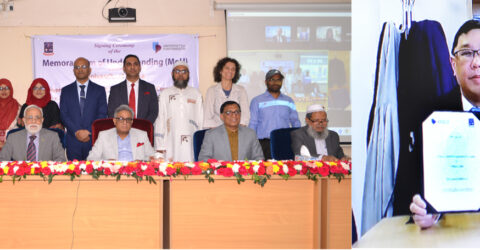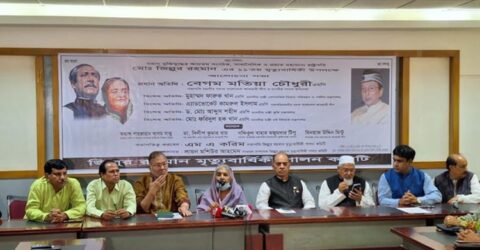
Shafiqul Islam (Shafiq)
The Ministry of Fisheries and Livestock has banned the procurement and sale of hilsa for a total of 22 days from October 4 during the breeding season. Yesterday Wednesday (September 22) at noon the ministry’s public relations officer signed by Iftekhar Hossain a press release said that Hilsa harvesting will be stopped for a total of 22 days from October 4 to October 25. Last year, the ban was from October 14 to November 4. But this time it has been brought forward. The decision was taken at a meeting at the Fisheries Department at 3pm on Wednesday. The meeting was attended by the Chief Scientific Officer of the Bangladesh Fisheries Research Institute in Chandpur Anisur Rahman confirmed the matter.
Hilsa hunting, transportation, storage, marketing and sale during the prohibited period are a punishable offense. In a meeting on Wednesday, Fisheries and Livestock Minister S M Rezaul Karim said illegal attempts to harvest hilsa in the country’s waters would not be allowed to succeed during the ban. During this period, mother hilsa cannot be caught in any way during breeding.
According to the Department of Fisheries, this time the fishermen did not get much hilsa as they came less in the rivers. As a result, some Fisheries Department experts, in view of the benefits to fishermen, voted to postpone the ban, which was proposed to start from October 20.
However, small-scale fishermen in the field level were of the opinion that the ban would be extended. Fishermen say that on October 6 in the new moon, a lot of hilsa will come to the rivers. So if the 22-day ban is not started with this new moon in mind, the mother will die on the way back to the river in large numbers from the sea. Reproduction of hilsa will be severely disrupted. For this reason, this ban will be most effective from the full moon on October 6-20.
Dulal Mia, a fisherman from Barguna’s Taltoli upazila, said in this regard, Ashwina is the time to release hilsa fish eggs in the full moon-new moon. If they don’t block at that time, then the two or four hilsa I get now will not be there in the future. All big trawlers will be trapped. Regarding the decision on the ban, Dulal Mia said, “The government is doing a good job.” We are happy.
Jatka protection program was started in Bangladesh from 2003-2004. Since then, the production of hilsa has been gradually increasing. In the first month of Ashwin since 2008, it was banned to catch mother hilsa for 11 days before and after the full moon. Since then, scientists have begun to see the benefits.
Then they found in the research, not only in the full moon, but also in the new moon of this period, hilsa lays eggs. Later, the ban was imposed for 22 consecutive days in conjunction with the full moon and the new moon. In the last financial year, 5 lakh 50 thousand metric tons of hilsa was extracted in the country. 66 percent of it came from the districts of Barisal division. According to the Bangladesh Fisheries Research Institute, about 12 percent of the country’s total fish production comes from hilsa.




